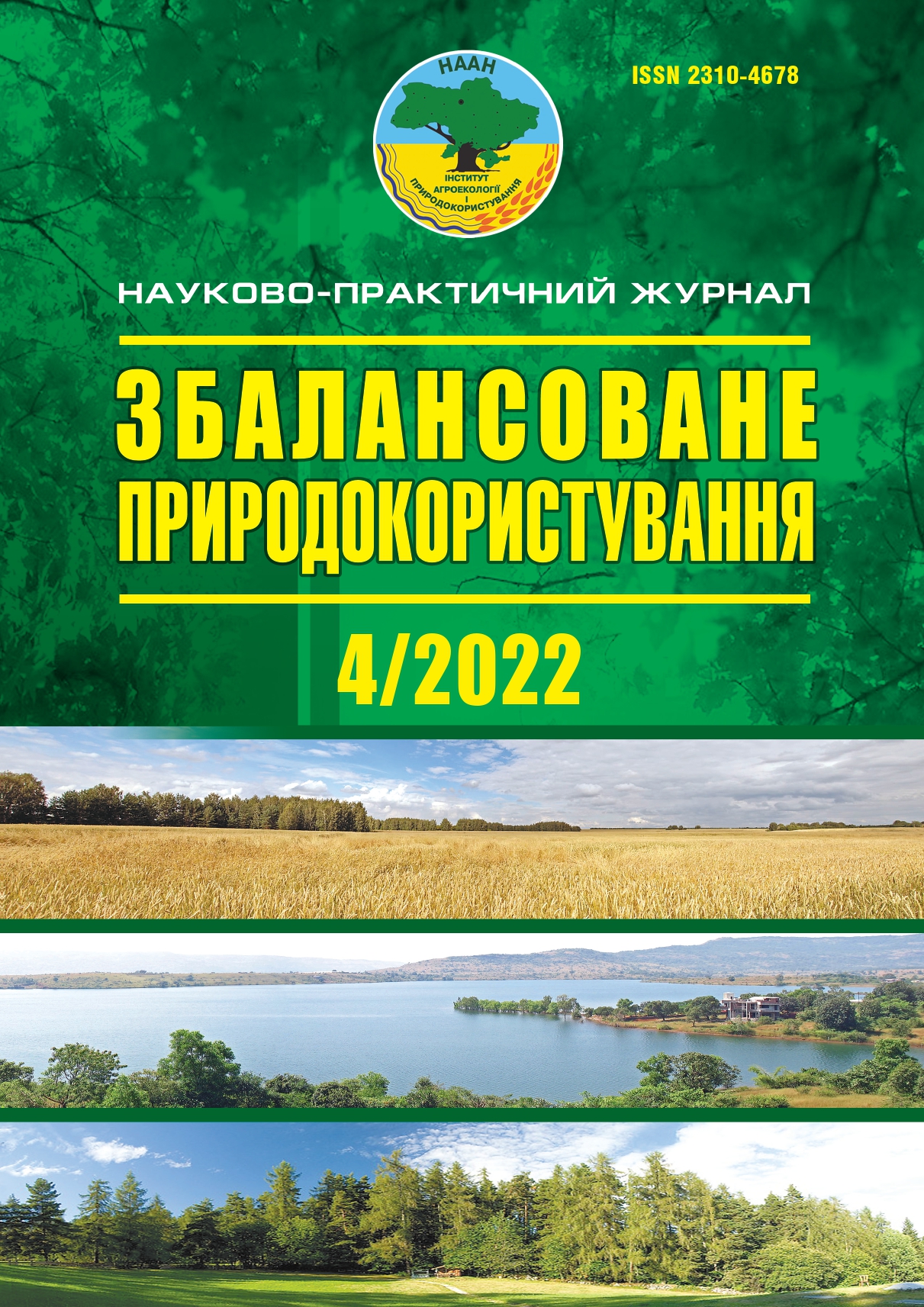Empirical knowledge of the organizational and economic orientations (basis) of the current legal system of land and natural use in Ukraine (emphasis on the agricultural sector)
DOI:
https://doi.org/10.33730/2310-4678.4.2022.275030Keywords:
Constitution of Ukraine, land and its natural resources, cognitive land economy, nature management, agrosphere, systemAbstract
An analysis and synthesis of ecological, socio-economic and normative-legal aspects as factors of objectivity and subjectivity of land-nature use, which are based on the laws of inanimate and living nature and society and are fully consistent with the current norms of the Constitution of Ukraine, has been carried out. It has been proven that economic and legal relations in Ukraine require the urgent construction of a constitutionally motivated system of economic approach to the process of land and nature use, primarily for the benefit of its citizens. It has been established that a special approach is required to model relations in relation to the use of renewable natural resources, which include soils, animal life, microbiota, solar, wind and other energy, atmosphere, hydrosphere, terrestrial vegetation and other natural resources. The main empirical knowledge based on the analysis and synthesis of socio-economic and normative-legal aspects of the balanced use of natural objects of property rights of the Ukrainian people, especially in the agricultural sphere, which are based on the laws of inanimate and living nature and society and are fully consistent with the current norms of the Constitution of Ukraine, are summarized. The necessary and sufficient set of fundamental scientific and theoretical aspects as the basis of organizational and economic guidelines for balanced nature management as a result of land reform in Ukraine as a new paradigm has been formulated.
References
Konstytutsiia Ukrainy [Constitution of Ukraine]. (1996). Vidomosti Verkhovnoi Rady Ukrainy — Information from the Verkhovna Rada of Ukraine, 30 [in Ukrainian]
Kovaliv, O.I. (2015). Osoblyvosti zemelnykh vidnosyn ta pryrodokorystuvannia v interesakh Ukrainskoho narodu [Features of land relations and environmental management in the interests of the Ukrainian people]. Efektyvna ekonomika — Efficient economy, 8. URL: http://www.economy.nayka.com.ua/?op=1&z=4251 [in Ukrainian].
Kovaliv, O.I. (2021). “Cognitive land economy” as a way of accomplishment the objective laws of living and non-living nature and society. Zbalansovane pryrodokorystuvannia — Balanced nature using, 2, 13–23 [in English].
Zaika, A.O. (2021). Regulatory and Legal Support of Land Reform in Ukraine. Zbalansovane pryrodokorystuvannia — Balanced nature using, 2, 24–34 [in English].
Kovaliv, O. (2016). Teoretychno-metodolohichni zasady zvershennia zemelnoi reformy v Ukraini yak nova paradyhma [Theoretical and methodological principles of land reform in Ukraine as a new paradigm]. WSPUPRACA EUROPEJSKA NR, 3 (10), 35–47 [in Ukrainian].
Kovaliv, O.I. (2021). Nova paradyhma zvershennia zemelnoi reformy v Ukraini — cherez “kohnityvnu zemelnu ekonomiku” [The new paradigm of land reform in Ukraine — through the “cognitive land economy”]. Ekonomist, 5, 10–23 [in Ukrainian].
Kovaliv, O.I. (2016). Zvershennia zemelnoi reformy v Ukraini: nova paradyhma [Completion of land reform in Ukraine: a new paradigm]. Kyiv: DIA [in Ukrainian].
Kovaliv, O.I. (2021). “Kohnityvna zemelna ekonomika” — osnovnyi kliuch do zvershennia zemelnoi reformy v Ukraini yak novoi paradyhmy [“Cognitive land economy” — the main key to land reform in Ukraine as a new paradigm]. Efektyvna ekonomika — Efficient economy, 6. URL: http://www.economy.nayka.com.ua/pdf/6_2021/10.pdf [in Ukrainian].
Kovaliv, O.I. (2017). Zemelnyi dyiavol. Yak zniaty prokliattia iz zemelnoi reformy [The earth devil. How to lift the curse of land reform]. Dzercalo tyjnia –The Mirror Weekly, 35 (331), 11 [in Ukrainian].
Downloads
Published
Issue
Section
License
- The authors reserve the right to authorship their work and pass the journal the right to publish this work under a Creative Commons Attribution License license, which allows other persons to freely distribute the published work with the obligatory The authors of the original work and the first publication of this magazine.
- The authors have the right to make independent additional agreements on the nonexclusive dissemination of the work in the form in which it was published by this magazine (for example, to post work in the company's electronic storage or to publish as a monograph) , subject to the first publication of the link to this journal.
- Journal policy allows and encourages the placement of authors on the Internet (for example, in the repositories of institutions or on personal websites) manuscript work as to the presentation of this manuscript to the editorial board and during its editorial processing, as it contributes to The productive scientific discussion and positively affects the efficiency and dynamics of citation published work (see The Effect of Open Access).


